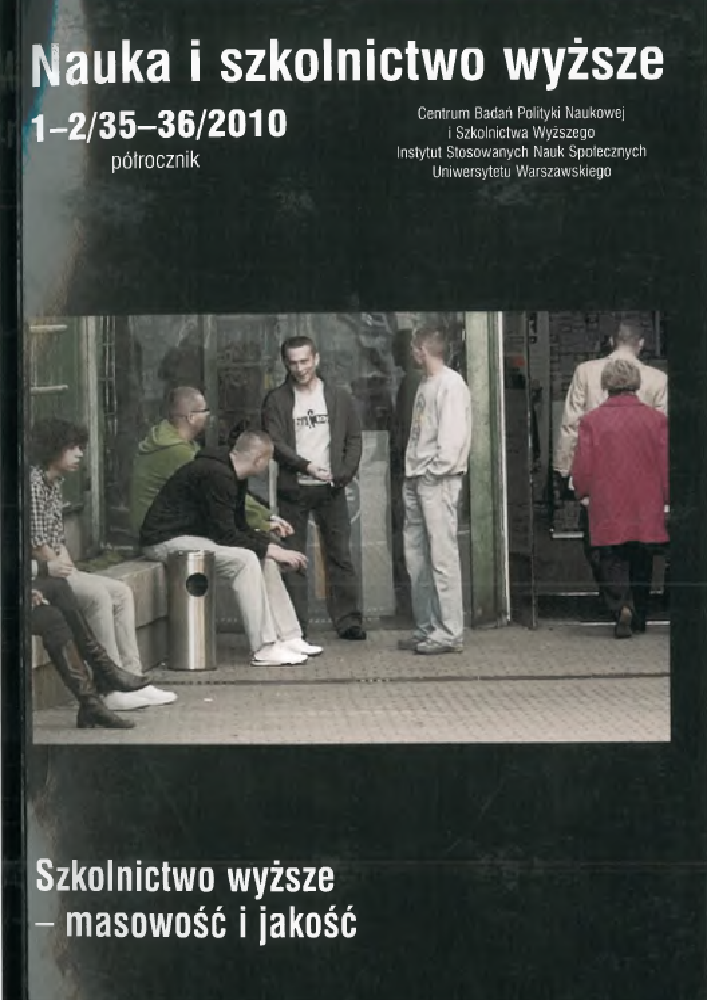Abstract
On the one hand, international mobility of Polish researchers represents a development opportunity for Polish Sciences and humanities (through promotion of Poland’s scholarly achievements around the world and Polish scholars’ participation in international projects and debates). On the other hand, however, mobility also entails the risk of the best scholars to migrate to other countries where research conditions and facilities are much better than those available in Poland. Motivations do not boil down to higher to salaries but are also related to access to research facilities and most recent academic literaturę, opportunities to work with the most renowned scholars, in an atmosphere of unconstrained intellectual exchange. Considering this double role of mobility for Polish research and academia, it seems reasonable to take a look at the occupational opportunities and academic careers of Polish scholars. We still lack systematic and comprehensive studies on Polish scholars’ mobility and their participation in international academic co-operation, including studies which include the gender perspective and draw attention to similarities and differences between women and men in the context of readiness for mobility. This is increasingly important given the growing share of women in the academia and in higher education at large. The author analyses the role of gender and family status of mobile scholars in the decision-making process and assessment of potential usefulness of an international fellowship.
References
Bauman Z. 2000 Globalizacja. I co z tego dla ludzi wynika, Państwowy Instytut Wydawniczy, Warszawa
Górny A., Kaczmarczyk R 2003 Uwarunkowania i mechanizmy migracji zarobkowych w świetle wybranych koncepcji teoretycznych, Seria „Prace Migracyjne”, nr 49, Instytut Studiów Społecznych Uniwersytetu Warszawskiego, Warszawa.
Kariery... 2005 Kariery młodych naukowców. Wzmocnienie polityk równego traktowania kobiet i mężczyzn w ramach projektu Phare PL2002I000-580-01.04, TNS Pentor, Warszawa
Majcher A. 2007 Gendering the Academic Elitę. University Expansion and Gender lnequality in Poland and Germany, niepublikowana rozprawa doktorska, Instytut Socjologii Uniwersytetu Warszawskiego,
Warszawa.
Massey D.S. 2003 Patterns and Processes of International Migration in the 21st Century, referat na konferencję „African Migration in Comparative Perspective”, Johannesburg (Republika Południowej Afryki), A-l czerwca 2003.
Mobilność... 2008 Mobilność młodych Polskich Naukowców. Raport z badania, Fundacja na rzecz Nauki Polskiej, Centrum Analiz Społeczno-Ekonomicznych CASE, Warszawa.
Nakonieczna J. 2007 Migracje międzynarodowe a rozwój państwa, „Żurawia Papers”, nr 9, Instytut Studiów Międzynarodowych Uniwersytetu Warszawskiego, Fundacja Studiów Międzynarodowych Wydawnictwo Naukowe Scholar, Warszawa.
